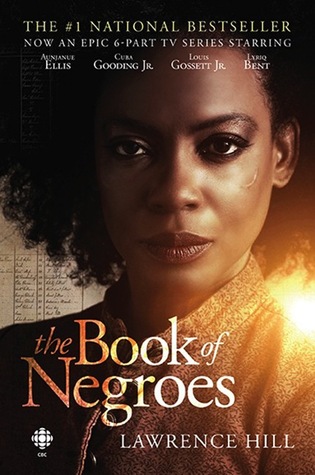
Synopsis: When Aminata Diallo sits down to pen the story of her life in London, England, at the dawn of the 19th century, she has a wealth of experience behind her. Abducted at the age of eleven from her village in West Africa and forced to walk for months to the sea, Aminata is sent to live as a slave in South Carolina. Years later, she forges her way to freedom and registers her name in the ''Book of Negroes,'' a historic ledger allowing 3,000 Black Loyalists passage on ships sailing from Manhattan to Nova Scotia. This spellbinding epic transports the reader from an African village to a plantation in the southern United States, from a soured refuge in Nova Scotia to the coast of Sierra Leone, in a back-to-Africa odyssey of 1,200 former slaves. In The Book of Negroes, Lawrence Hill transforms the neglected corners of history into a brilliantly imagined novel, now a Canadian classic that has been embraced throughout the world.
Date Published: January 1, 2007
Published By: HarperCollins
Number of Pages: 584
Rating: 5/5
The Book of Negroes is an astonishingly epic tale, awash in vivid detail and full of heart-wrenching scenes. Aminata Diallo deserves her place among modern literature's most memorable female characters. Her voice is so compelling and believable that, at the end of the book, I had to remind myself that she exists only in the pages of fiction, not history.
But Aminata's story is still based in historical fact and the things she endured were endured by real people. The tragedies she faces are almost too numerous to recount - the separation from and death of her loved ones, hunger, illness, physical and sexual assault, humiliation, financial instability, etc. But the one thing that causes all of this is the central focus of Aminata's story - the loss of her freedom. It is the one thing she strives to regain over the course of her life. She does eventually succeed - but she does so at great personal cost.
It's easy enough to sit here in the 21st century and proclaim that of course, slavery is abominable and it should never have happened and the people who participated in it were soulless and evil but what is absolutely chilling, and made clear in The Book of Negroes, is how easily people justified it. How easy it was for one human being to look at another and see them as property, as a commodity to be bought and sold and exploited. And it still goes on today. It's not something that happened in the past - it still happens today.
The Book of Negroes is not an easy read, but it is an important one. It will change the way you look at history, but more importantly, it will change the way you look at humans and our capacity for cruelty and hatred - but also our capacity for compassion and love.
No comments:
Post a Comment